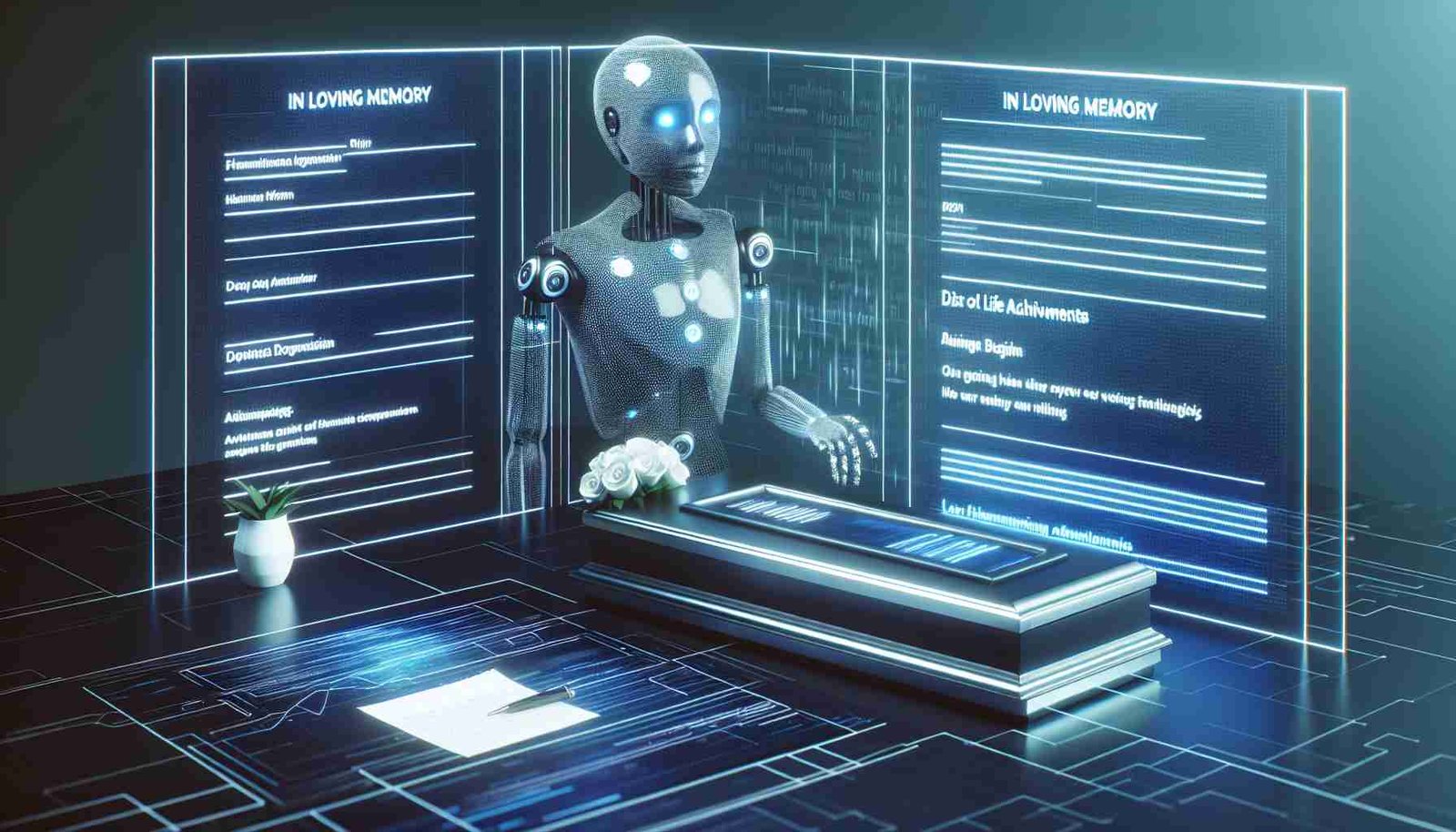In the age of advanced artificial intelligence (AI), the phenomenon of AI-generated fake obituaries has emerged, raising concerns about the integrity of online information regarding the deceased. As AI tools become increasingly capable of generating human-like text, the potential for misuse in creating inaccurate or entirely fabricated obituaries has become a significant issue.
Key Highlights:
- AI tools are now capable of generating personalized obituaries in minutes, offering a new way to honor the legacy of the deceased.
- The simplicity and accessibility of these AI-powered generators may inadvertently contribute to the spread of misinformation if misused.
- Ensuring the accuracy of obituary content is essential to maintain trust and respect for the deceased and their families.
Understanding AI-Generated Obituaries
AI-generated obituary services, such as SimpleObit, have emerged to simplify the process of creating heartfelt tributes to the deceased. These platforms use advanced algorithms to analyze provided information, generating personalized obituaries that reflect the life and accomplishments of the individual. While designed to offer convenience and emotional support, the ease of creating obituaries with these tools also poses risks of misuse, potentially leading to the publication of incorrect information online.
AI-generated fake obituaries and their implications, it’s important to consider additional aspects:
- Ethical Considerations: Delve into the ethical considerations surrounding the use of AI in generating obituaries, including the responsibility of platforms to ensure accuracy and prevent misuse.
- Technological Safeguards: Explore the technological measures that can be implemented to verify the authenticity of information provided to AI obituary generators, such as cross-referencing death records or implementing user verification processes.
- Impact on Society: Consider the broader societal implications of fake obituaries, including the potential to erode trust in digital information and the psychological impact on communities.
- Guidelines and Regulations: Discuss the need for guidelines and regulations governing the use of AI in creating obituaries, to prevent the spread of misinformation and protect individuals’ privacy and legacy.
- Future of Digital Legacy: Reflect on the future of digital legacies and how AI-generated content, including obituaries, fits into the larger conversation about our online footprints after death.
The discussion around AI-generated fake obituaries becomes part of a larger conversation about the role of technology in our lives and its impact on how we remember and honor those who have passed away.
The Risks and Implications
The rise of AI-generated fake obituaries highlights several concerns:
- Misinformation Spread: Incorrect or fabricated obituaries can spread misinformation, affecting families and communities.
- Identity Theft: The misuse of personal details in fake obituaries could lead to identity theft or other forms of online fraud.
- Emotional Impact: False reports of death can cause undue distress to friends and family members.
As AI continues to transform various aspects of our lives, the phenomenon of AI-generated fake obituaries serves as a reminder of the need for ethical considerations and safeguards. Ensuring the accuracy and integrity of obituaries published online is crucial in respecting the deceased’s legacy and providing comfort to grieving families. As we navigate the challenges and opportunities presented by AI, fostering awareness and implementing verification processes will be key in mitigating the risks of misinformation in the digital age.









